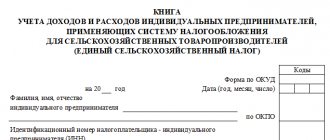Training according to the professional standards of an accountant
Professional standard "Accountant"
acts as a characteristic of the qualifications necessary for a specialist to generate documented, systematized information about accounting objects in accordance with the legislation of the Russian Federation. By applying professional standards at enterprises, management significantly reduces the costs of further training for their employees and structures their activities as a whole.
Professional retraining program "Accountant"
Suitable for individuals working in various sectors of the national economy in the areas of finance and economics. The presence of a professional retraining diploma in a specialist indicates a high level of professionalism and competence.
Training according to the professional standards of an accountant
designed for managers of financial services, accountants, finance and credit specialists, as well as other employees involved in accounting operations and their accounting. During the training process, we are guaranteed to train your staff:
- accounting;
- preparation and presentation of financial statements of economic entities;
- final generalization of the facts of economic life;
- conducting financial analysis, budgeting, cash flow management and much more.
Advanced training for accountants
at the National Technological University is aimed at updating and improving the theoretical and practical skills and abilities available to employees to meet the requirements of the professional standard corresponding to the activity.
Ignoring by companies the requirements of the professional standard of an accountant leads to administrative liability (see Article 5.27 of the Code of Administrative Offenses “Violation of Labor Laws”) in the form of fines of up to 50,000 rubles. We remind you that from July 1, 2021, employers are required to apply professional standards in their work.
Seven questions that concern accountants about professional standards and qualification assessment
We have collected the most common questions about the professional standard “Accountant”, which many clerks are still confused about.
Do they plan to change the professional standard “Accountant”?
Yes, an updated version of the professional standard “Accountant” should appear soon.
The developers of the standard - IPB of Russia and the Russian Union of Industrialists and Entrepreneurs - analyzed the wishes of the professional community and introduced new, higher qualification levels into the professional standard - 7th and 8th.
The new version of the professional standard reveals the career of a specialist from an ordinary accountant to the chief accountant of a holding company or the functional head of a large outsourcing company.
Now the updated version of the professional standard “Accountant” is being approved by the Russian Ministry of Labor.
Who is obliged to apply the professional standard?
Only those economic entities that are listed in Article 7 of the Federal Law “On Accounting” are required to apply the professional standard “Accountant” in terms of qualification requirements for chief accountants.
In all other cases, the application of the professional standard “Accountant” is advisory in nature.
Do you need to clearly state accountants' instructions from the text of the standard?
The professional standard can be used to develop accounting service regulations and job descriptions.
The professional standard contains the minimum requirements for education, work experience, and the necessary knowledge and skills.
The organization can increase the requirements contained in the professional standard.
Is it necessary to undergo an independent qualification assessment? Can the labor inspectorate require from an accountant a certificate issued by a qualification assessment center?
“Qualification assessment is voluntary for both employees and employers and does not entail any mandatory consequences or requirements,” as stated in the Information of the Ministry of Labor of Russia dated April 21, 2017 “Answers to frequently asked questions on the implementation of the Federal Law of July 3 2021 No. 238-FZ “On independent assessment of qualifications.”
Note that this is true for all accountants, including public sector accountants.
The statement that public sector accountants need to undergo an independent assessment of qualifications in accordance with Decree of the Government of the Russian Federation dated June 27, 2016 No. 584 has no basis.
This resolution deals exclusively with the fact that public sector organizations must ensure the application of professional standards in terms of the qualification requirements necessary for an employee to perform a certain job function.
To do this, they must, based on an analysis of the qualification requirements contained in professional standards and data on their personnel composition, make a decision on the need for vocational education, vocational training and (or) additional vocational education of employees. Qualification requirements are requirements for education and training, as well as practical experience. Requirements for education and training are confirmed by educational documents (bachelor’s, specialist’s, master’s or secondary vocational education diploma, certificate of advanced training, professional retraining diploma). Requirements for practical work experience are confirmed by the work book and employment agreements (contracts).
Other documents confirming qualifications (including a certificate of qualification) are optional.
Thus, during an inspection, the state labor inspectorate cannot require documents confirming the completion of an independent qualification assessment.
Is it possible to confirm compliance with the professional standard only during an independent qualification assessment conducted by the CSC?
According to the Federal Law of July 3, 2016 No. 238-FZ “On Independent Qualification Assessment,” an independent qualification assessment is a procedure for confirming the compliance of an applicant’s qualifications, in particular, with the provisions of a professional standard, carried out by a qualification assessment center (clause 3 of Article 2).
At the same time, this does not mean that it is possible to confirm compliance with the requirements of the professional standard “Accountant” only through an independent assessment.
For example, exam programs for preparation for certification, which are developed and implemented by the IPB of Russia, use the requirements of the professional standard “Accountant” as a basis and significantly expand them with knowledge and skills in related professions.
If an employer decides that an accountant must undergo an independent qualification assessment, and he refuses, is this grounds for dismissal?
The need to send employees to undergo an independent qualification assessment for their own needs is determined by the employer. The referral of employees (with their written consent) to undergo an independent qualification assessment is carried out by the employer on the terms and in the manner determined by the collective agreement, agreements, and employment contracts (Article 196 of the Labor Code of the Russian Federation). Employees have the right to undergo an independent qualification assessment (Article 197 of the Labor Code of the Russian Federation).
In other words, an employer can send an employee to undergo an independent qualification assessment, but only with his written consent, and the procedure for such a referral must be recorded in local documents.
Please note: “the procedure for passing a qualification assessment is voluntary, and, unlike certification, does not provide the employer with the right to terminate an employment contract with an employee who has not received a certificate of qualification.” This is stated in the Information of the Ministry of Labor of Russia dated April 21, 2017 “Answers to frequently asked questions on the implementation of the Federal Law of July 3, 2021 No. 238-FZ “On Independent Assessment of Qualifications.”
Does it follow from the professional standard “Accountant” that you need to undergo additional professional programs (professional development, professional retraining)?
This is not entirely true.
The Accountant professional standard offers various combinations of education and training. For example, the standard states that an accountant must have at least a secondary vocational education in training programs for mid-level specialists in the enlarged group of specialties “Economics and Management”. This is exactly what the OKSO code 080000 indicates in the professional standard “Accountant”. From July 1, 2017, a new code is in effect - 5.38.00.00. Corresponding changes will be made to the professional standard.
Thus, if an accountant has a secondary vocational or even higher education, but in a different field of training, he is recommended to obtain additional professional education in the field of Economics and Management. This will provide the accountant with a more confident position in the labor market.
The same applies to chief accountants.
The standard allows for them both higher education and secondary vocational education in the field of economics. Therefore, if the chief accountant has a secondary or higher economic education, additional professional programs are not necessary for him. And if he has education in a different field, to work as a chief accountant, it is advisable for him to master professional retraining programs.
The professional standard “Accountant” does not establish mandatory requirements for advanced training, since federal laws do not contain such requirements.
However, the employer has the right to set his own requirements by increasing the requirements of the professional standard.
For example, he may decide that the chief accountant should have not only additional professional training (even if he has a specialized education), but also international documents confirming knowledge in the field of accounting and, say, a foreign language. Thank you for your help in preparing the material for IPB Russia.
Professional accountant standard in 2021
The professional standard “Accountant” was approved by order of the Ministry of Labor of Russia dated December 22, 2014 No. 1061n. In essence, the professional standard is a “road map” for the accounting profession.
A professional standard characterizes the qualifications necessary for an employee to carry out a certain type of professional activity. Components of qualifications are knowledge, abilities, skills and work experience (Article 195.1 of the Labor Code of the Russian Federation).
The specialty determines the labor function, and the qualification reflects the level of skill within the specialty (Article 15 of the Labor Code of the Russian Federation). Thus, the professional standard “Accountant” establishes the qualifications necessary to work in the relevant specialty. Requirements for the qualifications of employees are determined by their job responsibilities.
The professional standard “Accountant” (hereinafter referred to as the Standard) distinguishes two positions – accountant and chief accountant. For each position, a generalized labor function is defined, which is detailed through a specific list of labor functions. For each function, it is indicated exactly what labor actions, skills and knowledge are necessary for its implementation.
The chief accountant is required to prepare and present financial statements of an economic entity. This generic function includes:
- preparation of financial statements;
- preparation of consolidated financial statements (according to IFRS);
- internal control of accounting and preparation of accounting (financial) statements;
- tax accounting and preparation of tax reporting, tax planning.
First, the Standard classifies tax reporting as financial reporting. In principle this is fair. After all, the amounts of taxes received as a result of tax accounting are reflected in the accounting accounts. And secondly, the Russian Ministry of Labor believes that an ordinary accountant is not capable of maintaining tax records.
The accountant must perform a final synthesis of the facts of economic life. This generalized function involves counting totals and balances in accounting registers and closing account turnover.
The standard classifies employees engaged in accounting operations and accounting as accountants. The responsibilities of such employees include performing simple calculations for individual areas of accounting. Consequently, the accountant may not know all areas of accounting.
It is advisable for the employer to differentiate the qualifications of accountants - for example, provide for the positions of “leading accountant”, “senior accountant”, “site accountant” (accounting for calculations, fixed assets, materials, etc.), “trainee accountant” (in practice – “assistant accountant” ").
Thus, an accountant needs knowledge of the basics of legislation on archiving, social and health insurance, pensions, as well as civil, labor, and customs legislation.
But it is not necessary for an accountant to know IFRS. The conclusion is that the Standard does not imply accounting based on IFRS. The chief accountant prepares consolidated financial statements by transforming the data contained in accounting registers compiled according to Russian rules.
The standard requires an accountant to prepare cost estimates for products (works, services). To do this, he needs ideas about the technology, organization of production and management adopted in the company. Meanwhile, the Qualification Directory for positions of managers, specialists and other employees provides for the position of economist in accounting and analysis of economic activities. Whether it should be abolished is unclear.
Education and experience
The Standard's education and experience requirements are confusing. The fact is that Law No. 402-FZ (clause 1, clause 2, part 4, part 5, article 7) establishes such restrictions only for chief accountants, and in certain cases (depending on the organizational and legal form of the economic subject, sphere of its activity, etc.). In other cases not directly specified, the legislator does not impose special requirements on accountants.
In accordance with the Standard, an accountant must have either secondary vocational education or additional professional education. But even with such education, you also have at least 3 years of practical experience in accounting and control.
A paradox arises: a specialist who has received the necessary education after the Standard came into force, but does not have the specified experience, will not be allowed to work in his specialty. Then what is the point of getting an education? A person who has incomplete higher education is also not entitled to work as an accountant.
A chief accountant who does not have a higher education must have practical experience of at least 5 years out of the last 7 calendar years of work related to accounting, preparation of accounting (financial) statements or auditing activities.
Additional professional education includes advanced training programs and professional retraining programs. Persons who have or are receiving secondary vocational and (or) higher education are allowed to master these programs (Article 76 of the Federal Law of December 29, 2012 No. 273-FZ “On Education in the Russian Federation”).
The presence of additional professional education in special programs and at least three years of work experience are requirements for applicants who do not have a specialized education (letter of the Ministry of Labor of Russia dated January 12, 2021 No. 14-3/B-3).
What are the consequences of non-compliance with the Standard?
An employment contract can be terminated by the employer if the employee is not suitable for the position held or the work performed due to insufficient qualifications confirmed by certification results. This is stated in Article 81 of the Labor Code of the Russian Federation.
But insufficient experience, as well as lack of necessary education, cannot be grounds for dismissal.
That is, accounting workers “on the ground” are not in danger. Following the Standard to the letter may be a concern when hiring. By the way, the requirements of the Standard have already been adopted by recruitment agencies that select personnel for accounting departments.
Based on materials from www.school.kontur.ru
How often to improve your skills?
The new professional standard for accountants requires regular training. For three consecutive calendar years, an accountant's training must be a minimum of 120 hours, but not less than 20 hours in each year.
Improve your skills in Educational!
Gain the knowledge necessary for a public accountant, taking into account all the intricacies and features of the accounting department of a government agency.
You will master the program “Accounting for a Budgetary Enterprise” in practice, ed. 3.0, even if you haven’t worked in the public sector before or are just starting out.
More details
How many skill levels are there now?
Since the fifth and sixth levels imply only secondary vocational education and bachelor's degrees, the classification levels had to be expanded. The current professional standard for an accountant now describes high qualifications with higher education at the master's level.
Thus, in the new professional standard for accountants 2021 there are four high levels of classification: 5th, 6th, 7th and 8th. The more complex your work, the higher your qualifications and, according to Art. 129 of the Labor Code of the Russian Federation, you have the right to ask your employer for a salary increase.
Features of working with primary documents
The “Documents and Document Flow in Accounting” standard does not eliminate the rights that 402-FZ establishes. That is, the right remains to determine the form of primary documents, except for bank and cash documents.
The primary document documents ongoing facts of economic life - the accrual of interest, depreciation of assets, changes in the value of assets.
If you need to arrange the delivery of goods in different batches on different dates under one long-term contract, you need to draw up a table with the signatures of different financially responsible persons and obtain the signature of each of them.
When creating primary accounting documents, a subject has the right to document continuing facts, for example, depreciation with a frequency of a week or a month.
An economic entity has the right:
- document several related facts of economic life with one primary document;
- document ongoing facts of economic life with primary accounting documents compiled at intervals: day, week, month, quarter, etc.;
- use as primary accounting documents documents compiled during the work of an economic entity to formalize its civil relations with contractors, employees, government agencies, to manage the economic entity.
The person who signed it bears responsibility for the signed document.
How to correct an accounting document?
The new standard makes differences in the correction of documents in electronic and paper form.
Corrections in the electronic document
They are entered in such a way that the original entries are clear and it is clear what they have been corrected for. It is allowed to create a new electronic document (clause 21).
Corrections in a paper document
Incorrect text or amount is crossed out and the correct data is indicated above. Cross-outs should be made with a thin line so that incorrect text or amounts can be read. You cannot create a new paper document (clause 23).
The correction must be accompanied by the inscription “corrected”, the signature of the persons who compiled the document, and the date.
Documents are stored in the form in which they were compiled. It is not allowed to convert paper documents into electronic format (even if the purpose is storage).
Accounting documents
If the primary document is drawn up on the basis of another document containing information about the fact of economic life, it must contain instructions on the corresponding supporting document (clause 8). For example, an advance report is drawn up on the basis of primary documents: checks, receipts, tickets, boarding passes, hotel accounts, etc.
If the date of preparation of the primary document differs from the date of the fact of economic life, such a document must contain the date of the commission of the fact of economic life (clause 9). For example, work reports for April were signed on May 4. The completion date is April 30, and the signing date is May 5.
How to draw up a document according to the new standard?
- In Russian, except for cases established by this standard.
- If the document is drawn up in a foreign language, it must contain a line-by-line translation into Russian.
- The translation does not require notarization. It is important that the organization has someone responsible for the quality of translation (a translator’s diploma is not required). The names of these employees can be included in the job description.
- Documents are drawn up in a foreign language if the legislation or regulations of the country in which the company operates require it.



